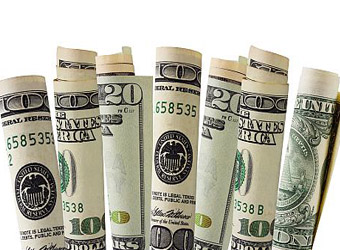Friday’s sell-off came just as the dollar had risen to multi-week highs on the back of strong data and an upbeat view on the economy from Federal Reserve Chairman Jerome Powell, which reinforced expectations of three or more interest rate hikes this year.
“The (tariff) move risked triggering a global trade war and could have significant unintended consequences for the U.S. economy,” said Joe Manimbo, senior market analyst, at Western Union Business Solutions in Washington.
Trump announced on Thursday he would impose heavy tariffs on imported steel and aluminium to protect U.S. producers, risking retaliation from major trade partners such as China, Europe and Canada.
The dollar fell to 105.26 yen, the lowest since November 2016 and was last down 0.50 percent at 105.70.
Against the euro and sterling, the yen was up 0.3 and 1.1 percent higher respectively.
The yen also rallied after Bank of Japan Governor Haruhiko Kuroda surprised currency markets by saying the central bank would consider an exit from its ultra-easy monetary policy if it met its inflation target in the year ending in March 2020. That helped the yen higher against the euro and sterling.
The dollar was already on the back foot before Kuroda spoke, having pulled sharply back from six-week highs after Trump’s decision to impose tariffs took the wind out of the greenback’s week-long recovery.
The dollar index, tracking it against a basket of major currencies, fell 0.41 percent to 89.96.
Bilal Hafeez, a macro strategist at Nomura in London, said Trump’s move was much more aggressive than tariffs imposed by his most recent predecessors. Barack Obama imposed tariffs on Chinese steel imports in May 2016 and George W. Bush against EU steel imports in March 2002. Those moves saw the dollar fall 1.5 percent and 6 percent respectively in the subsequent months.
“The contours of the dollar reaction will likely depend on the reaction of other countries to these tariffs… The more powerful force could be the withdrawal of capital flows to the U.S.,” he wrote in a note.
The euro, meanwhile, was up 0.50 percent versus the dollar at 1.2328, with the focus on Sunday’s Italian parliamentary election and the level of support for populist agendas that could have a wider impact on the European Union.
Source: Reuters


